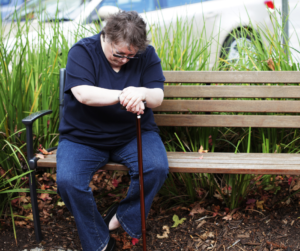Posture and Depression
Research shows that poor posture or abnormal spinal alignment can take years off your life! And create stress associated with mental depression and other disorders. If that doesn’t tell you posture is important, what does?
For over a century chiropractic care has been improving posture and function. As you continue through your care in our office you will notice drastic improvements in your posture as well as your overall health. Including your mental attitude. There have been many studies relating posture to physical and mental health.
Depression
Researchers found that people who were depressed experienced an improved mood after they changed their posture to be more upright. In one study sixty-one men suffering from mild to moderate depression were chosen to sit with their usual posture or upright posture. Changes in facial expression, fatigue, and speech were assessed.
Results
Those who assumed better posture had less fatigue compared to those keeping their usual posture. Also, the upright group exhibited less negative affect and lower anxiety. It seems that developing good posture habits can help you feel more confident, energetic, and happy. If you’re slouching as you read this, pause and pull your shoulder blades back and together, relax your shoulders down away from your ears, and look up. The more you work on it, the easier it will get, and simple changes like this can result in a noticeable difference in how you feel day in and day out. (1, 2)
Severity of Depression
It was found that there was a relation between the severity of depressive symptoms and the degree of spinal curvature. This was especially noticed in working environments. (3)
Chiropractic helps promote a natural body alignment. Do you know anyone who is miserable and sad all the time? Send them our way.
Call us to make an appointment today!
- Wilkes C, Kydda R, Sagarb M, Broadbenta E. Upright posture improves effect and fatigue in people with depressive symptoms. Psychiatry, Vol. 54, March 2017, Pp. 143-149.
- Canales JZ, Fiquer JT, Campos RN et el. Investigation of associations between recurrence of major depressive disorder and spinal posture alignment: A quantitative cross-sectional study. Gait Posture, 2017 Feb; 52:258-264.
- Kim YK. The Association between Working Posture and Workers’ Depression Healthcare (Basel). 2022 Mar 3;10(3):477.


No comments yet.